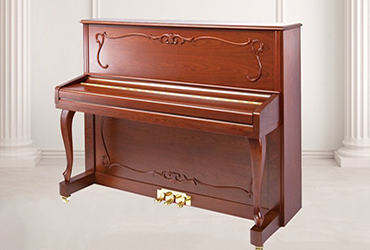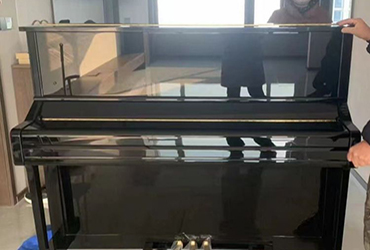"As long as you want, everyone can play a piano, and you can express your emotions by playing it." - According to the Xinhua Daily Telegraph on October 18, more and more "public pianos" or "public pianos" and "shared pianos" are appearing on the streets, in the outpatient halls of stations, shopping malls and even hospitals. These pianos are open to everyone fairly, with no fees and no barriers, and everyone can sit down and play a song.
a period of time, in the news and hot search, people have witnessed the public piano coming out of the circle again and again: in Huaqiang North Pedestrian Street, 58-year-old construction worker Yi Qunlin, wearing orange work clothes played "Liang Zhu" and "To Alice"; in the outpatient hall of Huzhou Central Hospital in Zhejiang, a patient's grandmother, over 80 years old, played "Hong Lake Waves" with her hand still attached to tape; at the Chengdu subway entrance, 64-year-old cleaner Aunt Xu went to practice the piano when she had time, her fingers were not standard, but her expression was focused and happy...
once, in everyone's inherent impression, the piano known as the "king of musical instruments" was the elegant art of a few people - it should belong to the brightly lit concert hall. The performers are elegant and solemn, and the listeners are sitting upright. When pianos take root in the corners of the city, people can improvise the melody in their hearts or enjoy a beautiful piano sound as long as they are willing to stop. Everyone who approaches it can temporarily put aside the worries of life and comfort their souls with music. In the small piano corner, the fluttering music note connects the people who are in a hurry, stirring up empathy and resonance beyond age and occupation, and outlining the romance and tenderness of a city.
the popularity of "public piano", let us really feel the increasingly strong artistic atmosphere in current social life. I still remember at the beginning of this year, topics such as "piano sales falling off a cliff" and "piano learning fever fading" caused heated public debate. Some netizens believe that this is a manifestation of the decline of the piano industry. But from another perspective, once upon a time, piano education was closely linked to "grade examination" and "promotion" in addition to cultivating hobbies. Today, although I have become a writer, I still remember the days of practicing the piano for 6 hours a day in order to take piano grades as a child.








